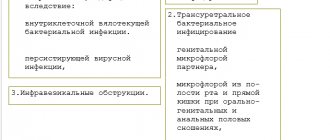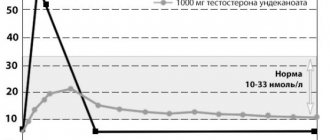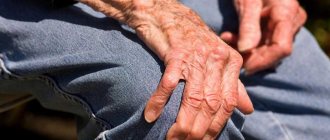Azilect, 1 mg, tablets, 30 pcs.
A total of 1,361 patients were enrolled in the rasagiline clinical trial program, representing 3,076.4 patient-years. In the double-blind, placebo-controlled studies, 529 patients received rasagiline 1 mg/day for 212 patient-years and 539 patients received placebo for 213 patient-years.
Monotherapy
The following list describes adverse reactions that were reported with increased frequency in placebo-controlled studies in patients receiving rasagiline 1 mg/day (rasagiline group - n=149, placebo group - n=151).
Adverse reactions with differences greater than 2% compared to the placebo group are shown in italics. The frequency of adverse reactions (% of patients) rasagiline/placebo is indicated in parentheses.
Adverse reactions are distributed according to the following frequency: very often - ≥1/10; often - ≥1/100 to <1/10; uncommon - ≥1/1000 to <1/100; rarely - ≥1/10000 to <1/1000%; very rarely - <1/10000.
Infectious and parasitic diseases:
often - influenza (4.7/0.7%).
Benign, malignant and unspecified neoplasms (including cysts and polyps):
often - skin cancer (1.3/0.7%).
From the blood and lymphatic system:
often - leukopenia (1.3/0%).
From the immune system:
often - allergies (1.3/0.7%).
Metabolism and nutrition:
infrequently - loss of appetite (0.7/0%).
From the mental side:
often - depression (5.4/2%), hallucinations (1.3/0.7%).
From the nervous system:
very often - headache (14.1/11.9%); infrequently - cerebrovascular accident (0.7/0%).
From the side of the organ of vision:
often - conjunctivitis (2.7/0.7%).
Hearing and labyrinth disorders:
often - vertigo (2.7/1.3%).
From the heart:
often - angina pectoris (1.3/0%); infrequently - myocardial infarction (0.7/0%).
From the gastrointestinal tract:
often - bloating (1.3/0%).
From the respiratory system:
often - rhinitis (3.4/0.7%).
For the skin and subcutaneous tissues:
often - dermatitis (2/0%); infrequently - vesicular-bullous rash (0.7/0%).
From the musculoskeletal and connective tissue side:
often - musculoskeletal pain (6.7/2.6%), neck pain (2.7/0%), arthritis (1.3/0.7%).
From the kidneys and urinary tract:
often - the urge to urinate (1.3/0.7%).
General disorders and disorders at the injection site:
often - fever (2.7/1.3%), malaise (2/0%).
When used as adjuvant therapy
The list below includes adverse reactions that were reported with increased frequency in placebo-controlled studies in patients receiving rasagiline 1 mg/day (rasagiline group - n=380, placebo group - n=388). The frequency of adverse reactions (% of patients) rasagiline/placebo is indicated in parentheses.
Adverse reactions are distributed according to the following frequency: very often - ≥1/10; often - ≥1/100 to <1/10; uncommon - ≥1/1000 to <1/100; rarely - ≥1/10000 to <1/1000%; very rarely - <1/10000..
Benign, malignant and unspecified neoplasms (including cysts and polyps):
uncommon - skin melanoma (0.5/0.3%).
From the side of metabolism and nutrition:
often - loss of appetite (2.4/0.8%).
From the mental side:
often - hallucinations (2.9/2.1%), nightmares (2.1/0.8%); infrequently - confusion (0.8/0.5%).
From the nervous system:
very often - dyskinesia (10.5/6.2%); often - dystonia (2.4/0.8%), carpal tunnel syndrome (1.3/0%), imbalance (1.6/0.3%); infrequently - cerebrovascular accident (0.5/0.3%).
From the heart:
infrequently - angina pectoris (0.5/0%).
From the side of blood vessels:
often - orthostatic hypotension (3.9/0.8%).
From the digestive system:
often - abdominal pain (4.2/1.3%), constipation (4.2/2.1%), nausea and vomiting (8.4/6.2%), dry mouth (3.4/ 1.8%).
For the skin and subcutaneous tissues:
often - rash (1.1/0.3%).
From the musculoskeletal and connective tissue side:
often - arthralgia (2.4/2.1%), neck pain (1.3/0.5%).
Research results:
often - weight loss (4.5/1.5%).
Injuries, poisonings and complications of procedures:
often - falls (4.7/3.4%).
Parkinson's disease causes hallucinations and confusion. According to post-marketing experience, these symptoms were observed in patients with Parkinson's disease receiving rasagiline.
Serious adverse reactions occurring with concomitant use of SSRIs, SNRIs, tricyclic/tetracyclic antidepressants and MAO inhibitors are well known. In the post-marketing period, cases of serotonin syndrome, manifested by agitation, confusion, rigidity, fever and myoclonus, have been reported in patients taking concomitant antidepressants/SNRIs and rasagiline.
In clinical studies of rasagiline, concomitant use with fluoxetine or fluvoxamine was not allowed. However, the following antidepressants were allowed in the indicated doses: amitriptyline - no more than 50 mg / day, trazodone - no more than 100 mg / day, citalopram - no more than 20 mg / day, sertraline - no more than 100 mg / day and paroxetine - no more than 30 mg/day In a clinical trial program in which rasagiline was co-administered with tricyclic antidepressants (115 patients) and SSRIs/SNRIs (141 patients), no cases of serotonin syndrome were observed.
Increases in blood pressure, including rare cases of hypertensive crises, have been reported during post-marketing use of rasagiline in patients consuming unspecified amounts of tyramine-rich foods in their diet.
There are known cases of drug interactions with the simultaneous use of MAO inhibitors with sympathomimetic drugs.
In the post-registration period, a case of increased blood pressure was reported in a patient who used the ophthalmic vasoconstrictor tetrahydrozoline and was simultaneously treated with rasagiline.
Impulsive personality disorder.
Cases of increased libido, hypersexuality, gambling addiction, compulsive need to buy or acquire, overeating and binge eating have been reported in patients treated with dopamine receptor agonists and/or other dopaminomimetics. A similar pattern of impulsive personality disorder was observed in the post-marketing period in patients taking rasagiline, which was characterized by compulsive and impulsive behavior and obsessions.
Azilect®
In clinical studies, the following adverse reactions were most often identified: with monotherapy - headache, depression, dizziness, flu, rhinitis; during therapy as an adjuvant to levodopa therapy - dyskinesia, orthostatic hypotension, falls, abdominal pain, nausea, vomiting, dry mouth; in both treatment regimens - musculoskeletal pain, back and neck pain, arthralgia.
The list below describes adverse reactions that were reported with increased frequency in placebo-controlled studies in patients receiving rasagiline 1 mg/day.
The frequency of occurrence of adverse reactions is defined as follows: very often (≥1/10), often (≥1/100 to <1/10), infrequently (≥1/1000 to <1/100), rarely (≥1/10000 to <1/1000), very rare (<1/10000), unknown - the frequency of reactions cannot be determined based on available data.
When used as monotherapy
Infectious and parasitic diseases:
often - flu.
Benign, malignant and unspecified neoplasms (including cysts and polyps):
often - skin cancer.
Blood and lymphatic system disorders:
often - leukopenia.
From the immune system:
often - allergies.
Metabolism and nutrition:
infrequently - loss of appetite.
From the mental side:
often - depression, hallucinations*; unknown - impulsive disorders*.
From the nervous system:
very often - headache; infrequently - cerebrovascular accident; unknown - excessive daytime sleepiness, episodes of sudden sleep onset, serotonin syndrome*.
From the side of the organ of vision:
often - conjunctivitis.
Hearing and labyrinth disorders:
often - vertigo.
From the heart:
often - angina pectoris; infrequently - myocardial infarction.
From the side of blood vessels:
unknown - hypertension*.
From the gastrointestinal tract:
often - bloating.
From the respiratory system:
often - rhinitis.
For the skin and subcutaneous tissues:
often - dermatitis; infrequently - vesicular-bullous rash.
From the musculoskeletal system and connective tissue:
often - musculoskeletal pain, neck pain, arthritis.
From the kidneys and urinary tract:
often - the urge to urinate.
General disorders and disorders at the injection site:
often - fever, malaise.
When used as adjuvant therapy
Benign, malignant and unspecified neoplasms (including cysts and polyps):
infrequently - skin melanoma*.
Metabolic and nutritional disorders:
often - loss of appetite.
From the mental side:
often - hallucinations*, nightmares; infrequently - confusion, impulsive disorders*.
From the nervous system:
very often - dyskinesia; often - dystonia, carpal tunnel syndrome, imbalance; infrequently - cerebrovascular accident; unknown - excessive daytime sleepiness, episodes of sudden sleep onset, serotonin syndrome*.
From the heart:
infrequently - angina pectoris.
From the side of blood vessels:
often - orthostatic hypotension*, unknown - hypertension*.
From the digestive system:
often - abdominal pain, constipation, nausea and vomiting, dry mouth.
For the skin and subcutaneous tissues:
often - rash.
From the musculoskeletal and connective tissue side:
often - arthralgia, neck pain;
Research results:
often: weight loss.
Injuries, poisonings and complications of procedures:
often - falls.
Parkinson's disease causes hallucinations and confusion. According to post-marketing experience, these symptoms were observed in patients with Parkinson's disease receiving rasagiline.
* - See description of individual adverse reactions.
See also the section “Interaction with other drugs”.
Description of selected adverse reactions
Orthostatic hypotension
In blinded, placebo-controlled studies, severe orthostatic hypotension was reported in one patient (0.3%) in the rasagiline group (the drug was used as adjuvant therapy); none were observed in the placebo group. Clinical trial data also suggest that orthostatic hypotension occurs most frequently in the first two months of rasagiline treatment and decreases over time.
Hypertension
Increases in blood pressure (BP), including rare cases of hypertensive crises, have been reported with the use of rasagiline during the post-marketing period in patients consuming foods rich in tyramine in their diet.
In the post-registration period, a case of increased blood pressure was reported in a patient who used the ophthalmic vasoconstrictor tetrahydrozoline and was simultaneously treated with rasagiline.
Impulsive personality disorder
Cases of increased libido, hypersexuality, gambling addiction, compulsive need to buy or acquire, overeating and compulsive overeating, kleptomania, dermatillomania have been reported in patients treated with dopamine receptor agonists and/or other dopaminomimetics. A similar pattern of impulsive personality disorder was observed in the post-marketing period in patients taking rasagiline, which was characterized by compulsive and impulsive behavior and obsessions.
Excessive daytime sleepiness and sudden sleep episodes
Excessive daytime sleepiness may occur in patients taking dopamine agonists and/or other dopaminergic drugs. Cases of similar excessive daytime sleepiness have been reported during treatment with rasagiline.
Cases of sudden sleep onset during patients performing normal daily activities have also been reported when rasagiline was used with dopaminergic drugs. Some patients did not show any warning signs, such as excessive sleepiness, before falling asleep. In some cases, such events were reported more than 1 year after the start of treatment.
Hallucinations
Parkinson's disease causes hallucinations and confusion. According to post-marketing experience, these symptoms were observed in patients with Parkinson's disease receiving rasagiline.
Serotonin syndrome
In clinical studies of rasagiline, co-administration of rasagiline with fluoxetine or fluvoxamine was not permitted. However, the following antidepressants were approved at the indicated doses: amitriptyline not more than 50 mg/day, trazodone not more than 100 mg/day, citalopram not more than 20 mg/day, sertraline not more than 100 mg/day and paroxetine not more than 30 mg/day. Serious adverse reactions have been reported and caution should be exercised during concomitant use of SSRIs, SNRIs, tricyclic/tetracyclic antidepressants and MAO inhibitors.
During post-marketing surveillance, cases of the development of potentially life-threatening serotonin syndrome, manifested by agitation, confusion, rigidity, fever and myoclonus, have been reported in patients receiving antidepressants, meperidine (pethidine), tramadol, methadone or propoxyphene concomitantly with rasagiline.
Melanoma
The incidence of cutaneous malignant melanoma in placebo-controlled clinical trials was 2/380 (0.5%) in the rasagiline 1 mg group given as an adjuvant to levodopa therapy versus 1/388 (0.3%) incidence in the placebo group. Cases of melanoma have also been reported in the post-registration period (see also section "Special instructions").




